Table of Contents
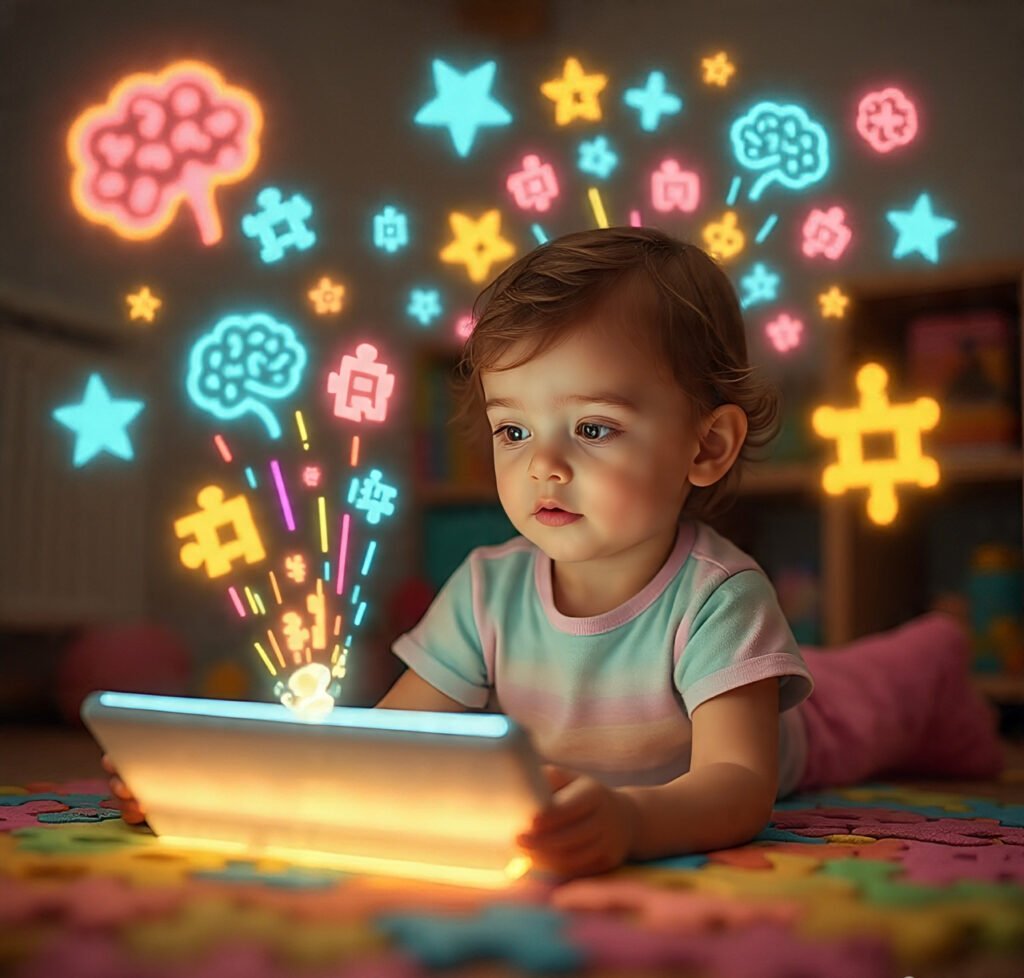
“Screen time Kids brain development“ is no longer just a mommy-blog buzzword — it’s the quiet battlefield where your child’s future concentration, creativity, and emotional regulation are being forged.
Let’s walk through a story most modern parents quietly identify with.
Scene 1: The Living Room Warzone
It’s 7:30 PM. Dinner is ready. But 6-year-old Aarav won’t bat an eye — his gaze is locked on a fast-paced cartoon playing on his tablet.
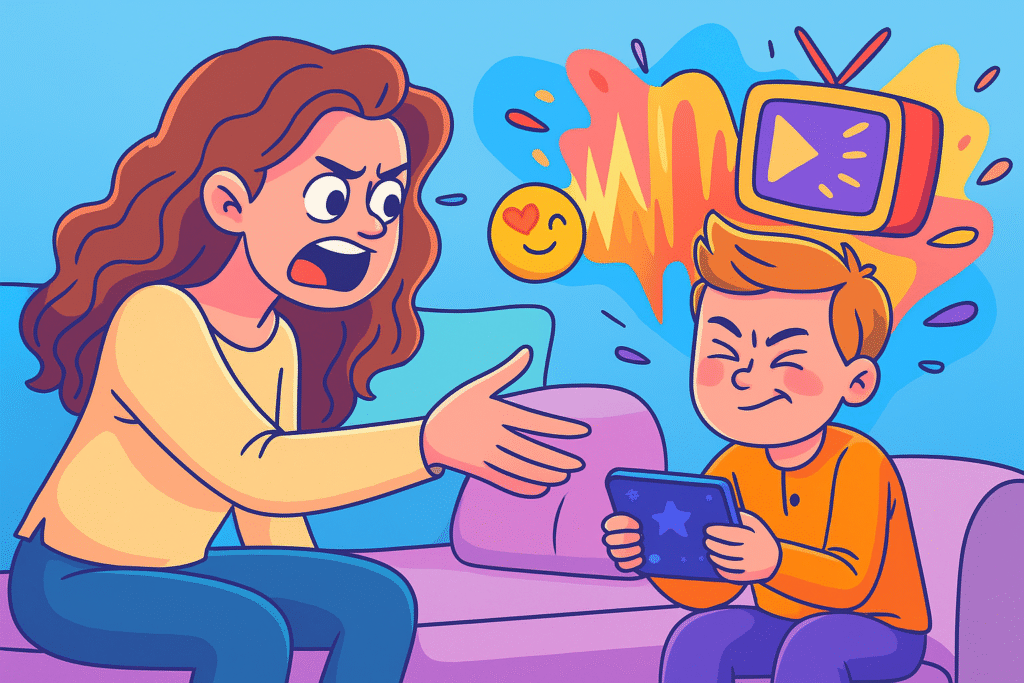
“Dinner time!” Riya, his mom, calls out. Once. Twice. Third time — nothing.
She gently takes the tablet away.
Suddenly, the meltdown begins — red face, tearful eyes, flailing arms.
The screen is gone. But the battle? Just getting started.
The Modern Parenting Dilemma: Screens Are Everywhere
From TVs to tablets, learning apps to videos screens have become digital babysitters. And while we hope they’re teaching our children, science paints a more complex picture.
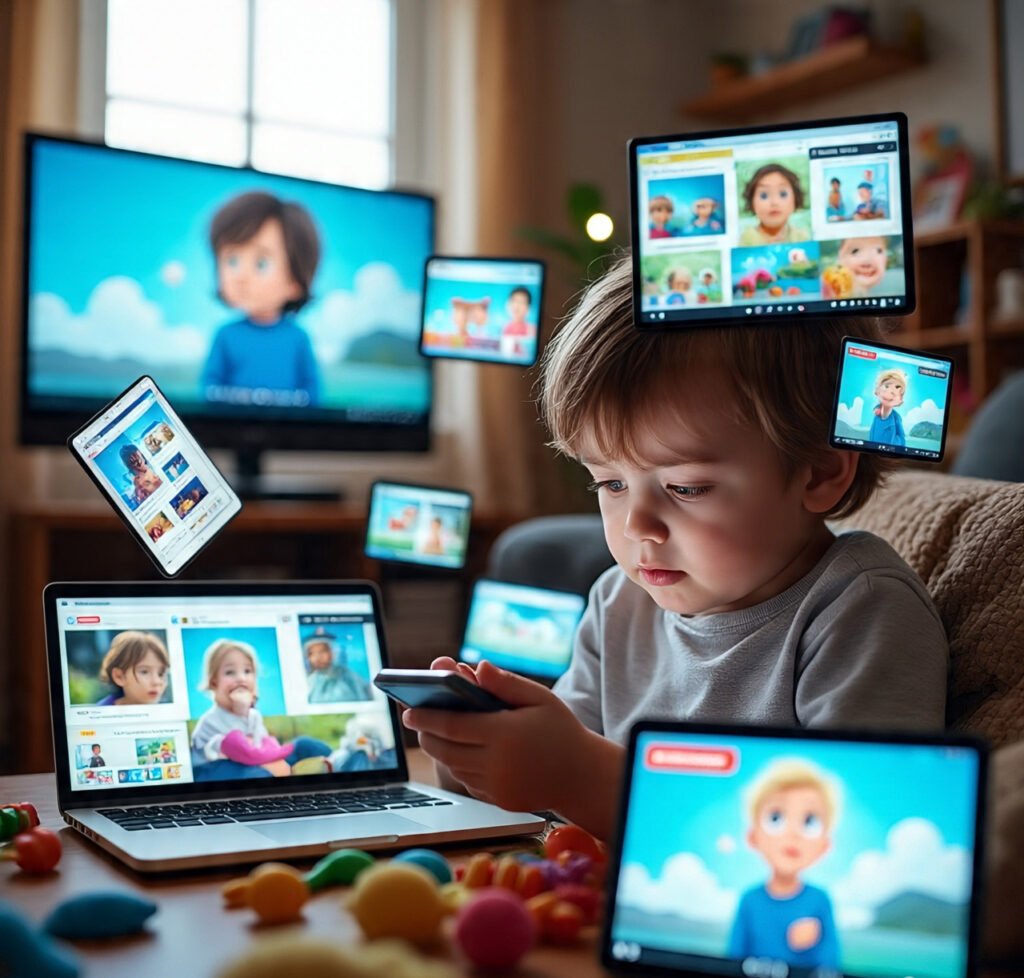
Passive screen time like binge-watching cartoons or endlessly scrolling videos can overstimulate the Kids brain development.
In kids under 14, research shows it can delay language skills, reduce attention span, and impair emotional regulation.
The prefrontal cortex — the brain’s center for planning, attention, and impulse control — is still developing. Overexposure to reward-heavy content rewires it for instant gratification, not focus or patience.
The type of screen time matters as much as the duration.
The Brain Under the Screen: What Science Shows
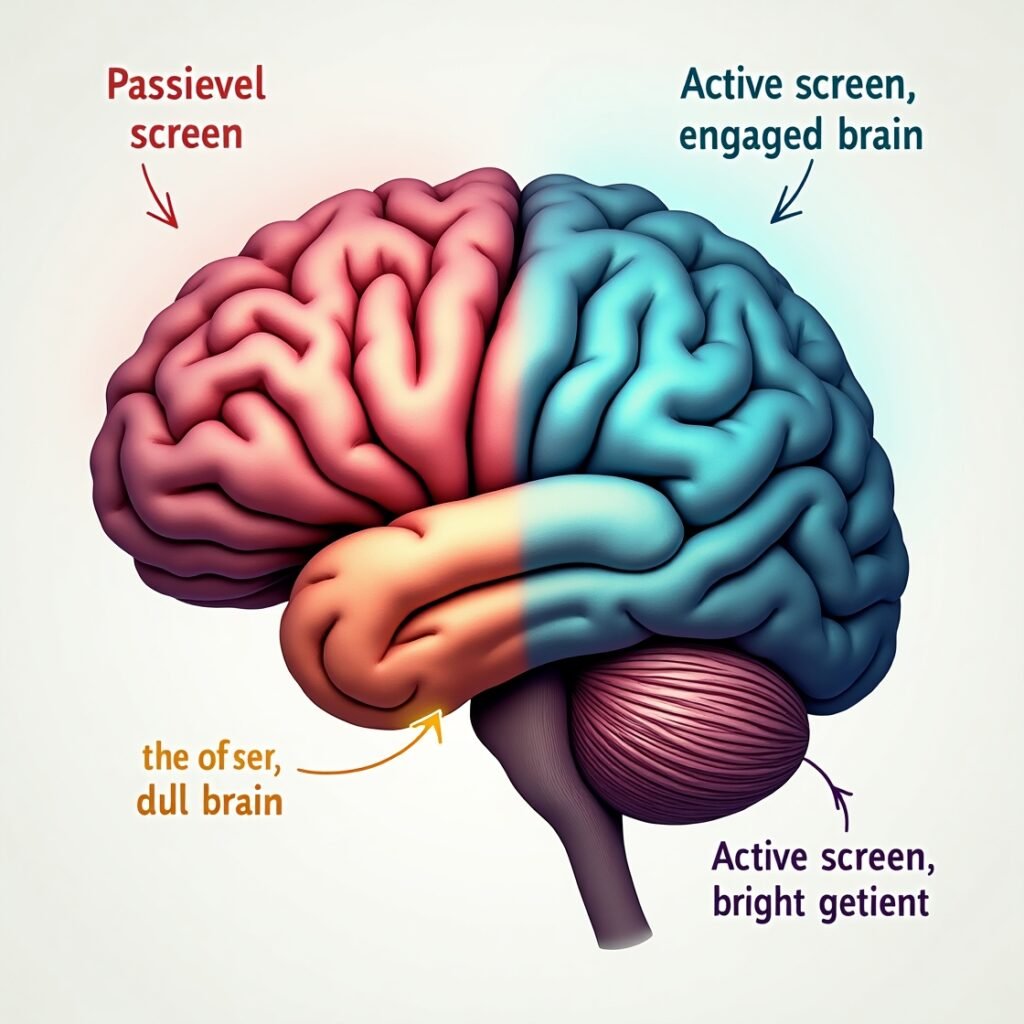
Passive content activates reward centers in the brain but doesn’t challenge it.
Active content, however games that involve interaction, problem-solving, and listening stimulates cognitive growth.
In simple terms:
- Watching = consuming
- Playing = building
Aarav Again — 3 Weeks Later
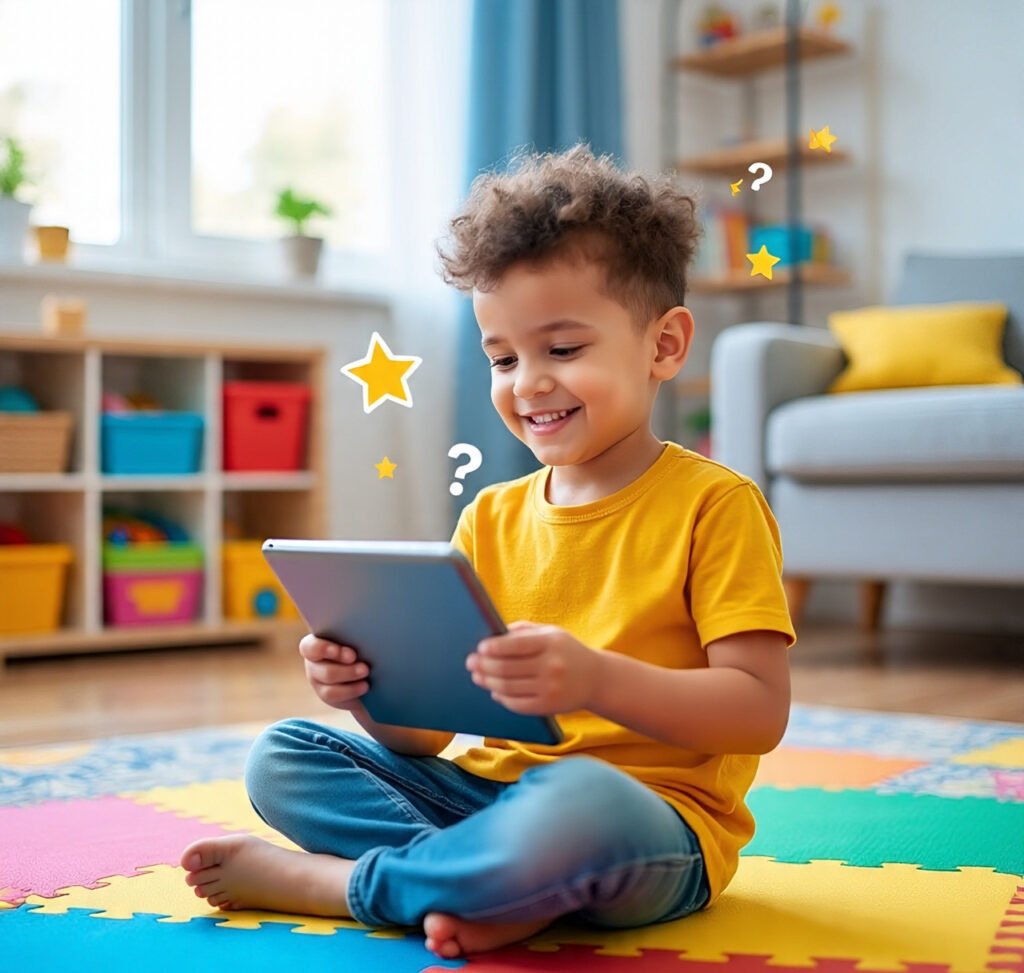
It’s 7:30 PM again.
No more meltdowns.
Aarav is now playing a “Find the Picture” game on Focus Fun hearing clues, spotting shapes, collecting stars. He even laughs when he guesses wrong and starts over, eager to try again.
Riya watches, amazed. No frustration. No fights.
This time, they talk about the game instead of arguing over the screen.
Focus Fun’s Secret: Balance, Not Ban
Focus Fun is designed with one clear goal: healthy Kids brain development. Each activity is built to promote active learning, not mindless distraction.
Here’s what sets it apart:
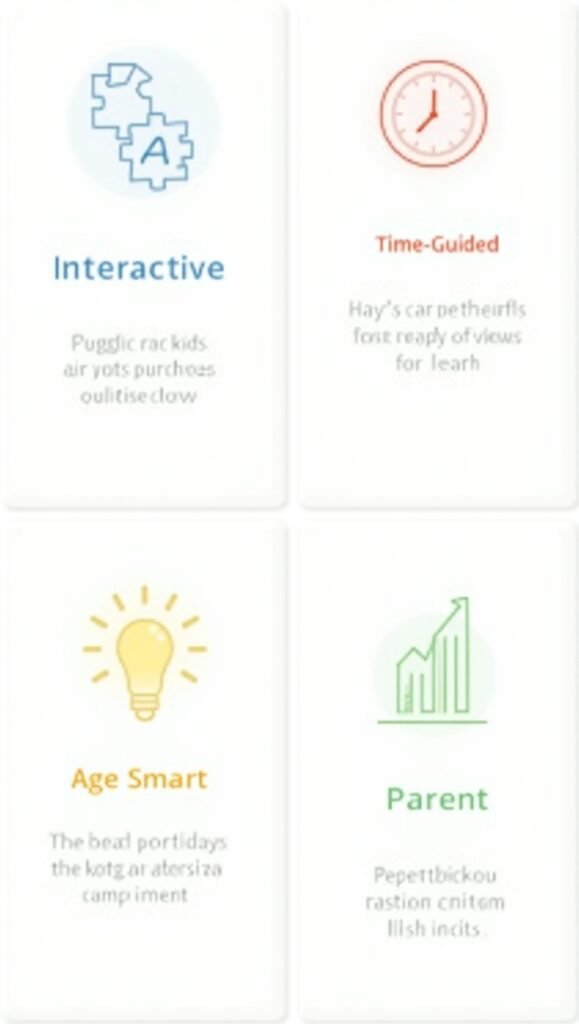
Interactive, Not Passive
Kids don’t just watch they tap, think, listen, and solve. This keeps their brain engaged and sharp.
Age-Appropriate Design
A 4-year-old gets visual clues and patterns. A 10-year-old tackles math and grammar. Content evolves with your child.
Timed Sessions
Set healthy screen limits. Focus Fun reminds kids when it’s time to pause — building discipline, not dependency.
Smart Parent Dashboard
See what your child played, for how long, and what skills they worked on — without spying or invading privacy.
From Meltdown to Mindful Play
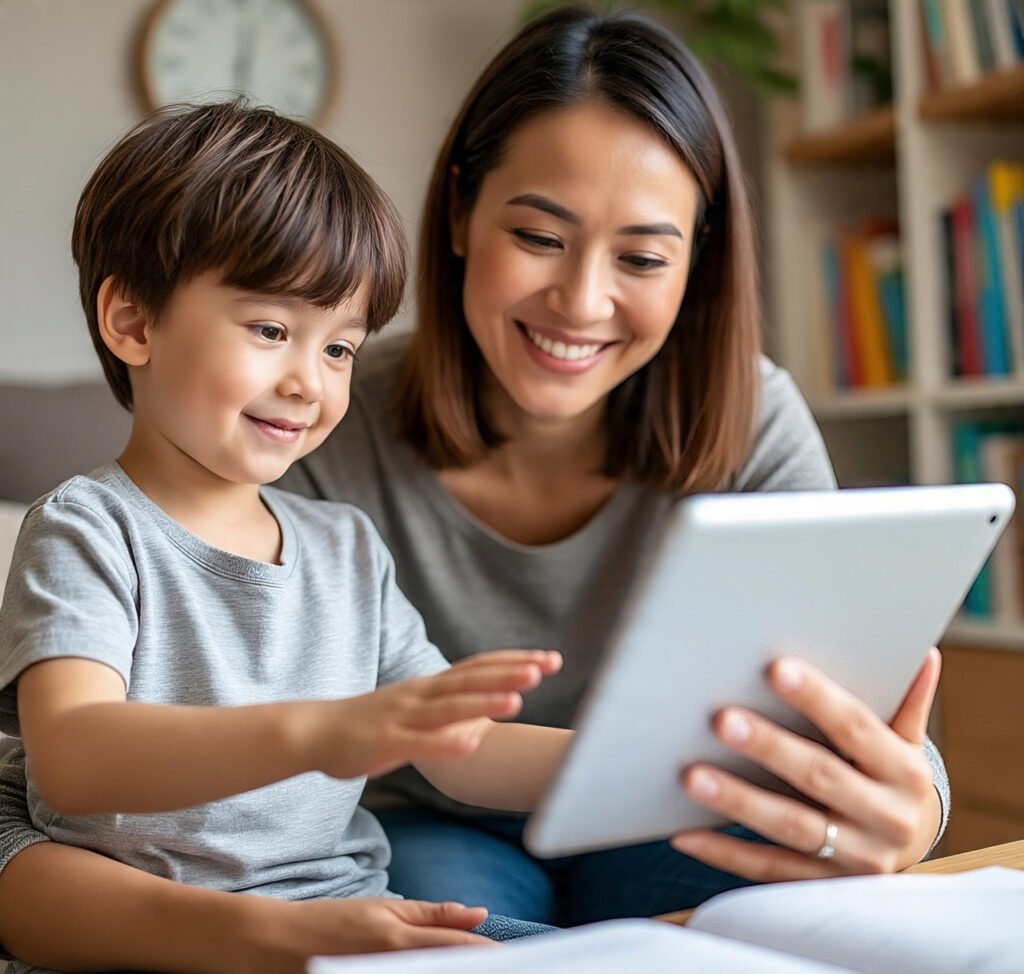
The goal isn’t to ban screens — it’s to reimagine how we use them.
Tech isn’t going anywhere. But how we let it shape our children’s minds is still in our control.
You don’t have to choose between digital detox or digital overload.
With Focus Fun, find the sweet spot — screen time that builds brains, not breaks them.
Why This Matters Now
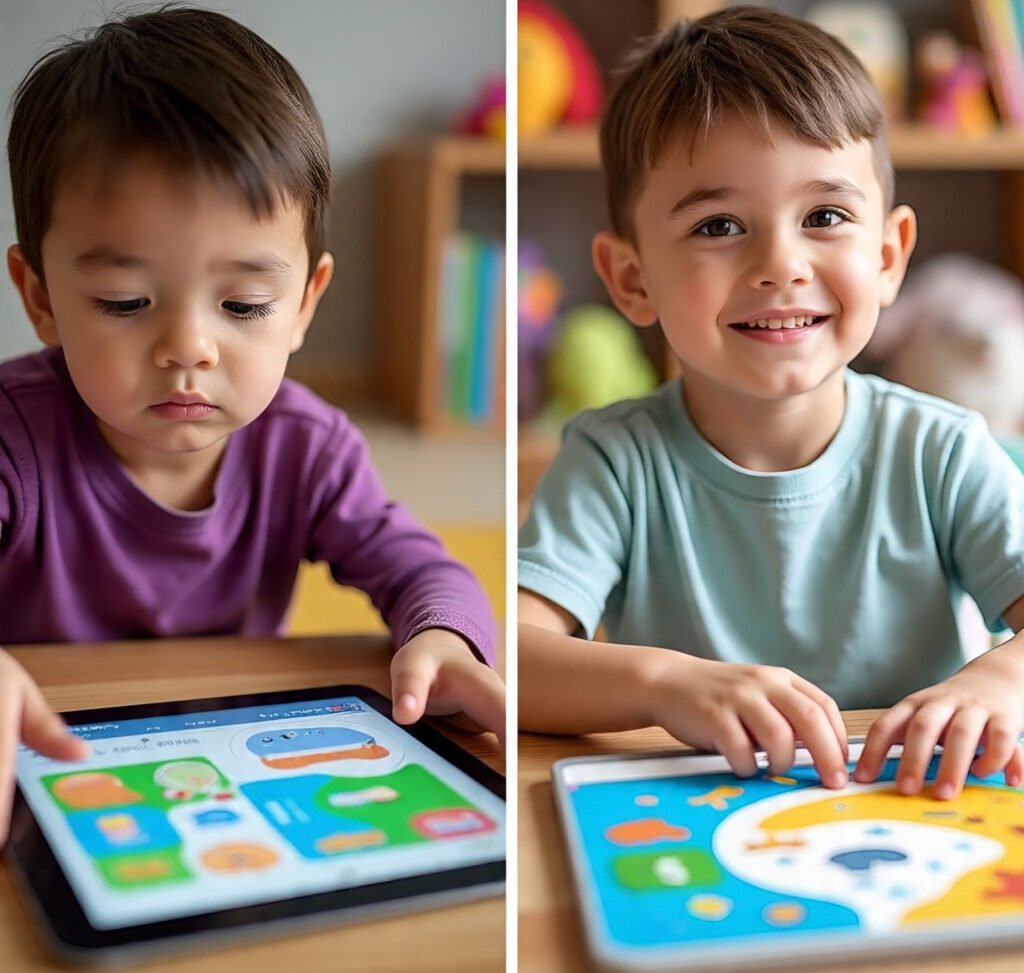
Recent studies show:
- Children under 8 average over 4 hours of daily screen use
- 80% of that is passive content cartoons
- Just 15 minutes of interactive learning daily can spark lifelong cognitive growth
It’s not the screen.
It’s what’s on it and how it’s used.
Focus Fun in Real Families: What Parents Say
“My daughter was addicted to cartoons. Now she waits for ‘Math Quiz Time’ on Focus Fun — and she doesn’t even realize she’s learning!”
— Seema, Mumbai
“We fought over screen time daily. Now, we have a routine. No stress, just fun.”
— Rahul, Pune
“It’s the first time I’ve seen my son more talkative after screen time than before. That’s a win.”
— Meena, Bangalore
[Link to: Parent Testimonials Page]
Ready to Rethink Screen Time?
Focus Fun isn’t just an app. It’s your digital parenting ally.
- Brain-boosting
- Science-backed
- Screen-smart
- Stress-reducing
Let screens help, not hurt.
Choose Focus Fun where screen time becomes brain time.
Let me know!
FAQs
1. How does mobile addiction affect the brain?
👉 Excessive screen time especially passive viewing can harm Kids brain development by reducing attention span, weakening memory, and overstimulating young minds.
2. What are the side effects of mobile phones on children?
👉 Functions like focus, impulse control, and emotional regulation are deeply affected during Kids brain development, especially when screen use lacks structure or purpose.
3. Is mobile addiction a serious problem?
👉 Yes. It silently disrupts focus, impulse control, and mental flexibility key areas of Kids brain development during childhood.
4. How does Focus Fun support healthy Kids brain development?
👉 Through gamified quizzes, memory challenges, and logic-based tasks that activate key brain areas like attention, language, and reasoning.
5. How much screen time is too much for Kids brain development?
👉 For young children, over 1–2 hours daily of non-educational screen time may begin to harm attention, emotional regulation, and long-term Kids brain development.
